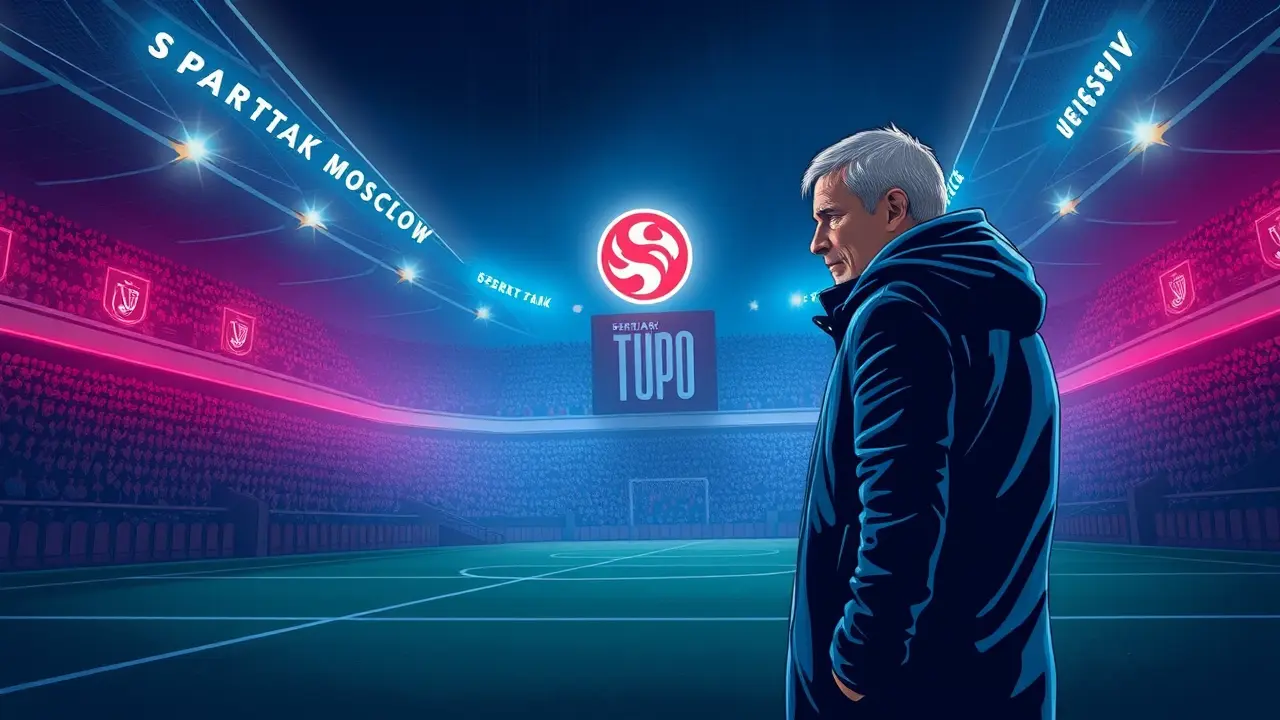Former Russian footballer Alexander Mostovoi wants advisor role at Spartak Moscow.
The corridors of Spartak Moscow are echoing with more than just the shouts of training sessions and the roar of the crowd, as a new, distinctly political drama unfolds with the appointment of Sergei Nekrasov as General Director—a move that has seemingly ruffled the feathers of a club legend. Alexander Mostovoi, the former Russian national team midfielder whose name is synonymous with Spartak's more glorious European forays, has publicly thrown his hat into the ring for an advisory role, creating a fascinating subplot that feels less like a simple job application and more like a strategic power play.Nekrasov's recent, almost pre-emptive statement that Mostovoi 'would hardly call him a football man' reveals an underlying tension, a perceived divide between the new executive's administrative focus and the old guard's pure footballing pedigree. Mostovoi’s response was a masterclass in diplomatic assertiveness; while confirming he maintains a connection with Nekrasov, he didn’t just ask for a job—he framed it as the club’s logical, almost necessary, next step.'It would be one of the most correct decisions,' he stated, his words carrying the weight of a man who has navigated the pressures of top-flight football in Russia and Spain. He was tactfully flexible on the specific title—'advisor' or otherwise—noting the plethora of roles within a modern football club, but he was utterly inflexible on the value of his own unique experience, a commodity he rightly pointed out is both rare and irreplaceable.'Such football experience as I have, many have not had and will not have,' he declared, a statement that is less boast and more a simple, factual recounting of a career that saw him become one of the first post-Soviet stars to genuinely thrive in Europe, earning the nickname 'The Czar' during his time at Celta Vigo. This isn't merely a retired player seeking a comfortable sinecure; it's a claim that his deep, intuitive understanding of the game, forged in a different era of football, is the very antidote to the modern corporate sterility he perhaps perceives in Nekrasov’s reign.For Spartak, a club perpetually wrestling with its immense history and its often-frustrating present, this presents a critical dilemma. Do they embrace the passionate, albeit potentially volatile, insight of a legend like Mostovoi, whose tactical brain and feel for the club’s soul could reconnect them with their identity? Or do they view his overture as a challenge to the authority of their newly installed management structure, a ghost of past glories threatening to undermine a carefully laid, data-driven plan for the future? The situation echoes similar power struggles at clubs like AC Milan, where Paolo Maldini’s return brought initial success but ultimately clashed with a new ownership vision, or at Manchester United, where the voices of legends like Gary Neville are constantly weighed against the decisions of the executive suite.Mostovoi’s potential appointment could galvanize the fanbase, offering a symbolic return to footballing principles, but it also carries the risk of creating a parallel center of influence, blurring lines of command. As the Russian Premier League continues its complex evolution, the decision Spartak makes here will be a telling indicator of whether they believe their future lies in embracing the unquantifiable wisdom of their past or in a clean, unsentimental break from it. The ball, for now, is firmly in Nekrasov’s court, and how he plays it will reveal much about what kind of football club Spartak Moscow truly aspires to be.
It’s quiet here...Start the conversation by leaving the first comment.
© 2025 Outpoll Service LTD. All rights reserved.
